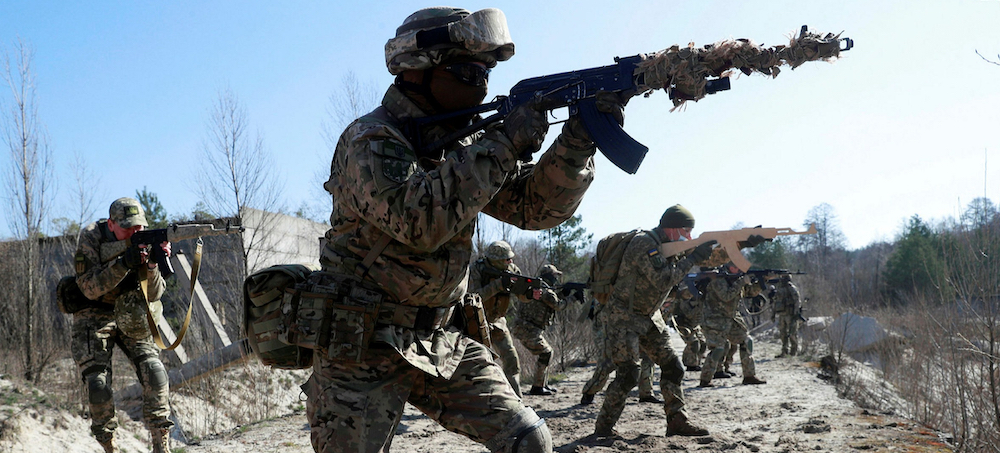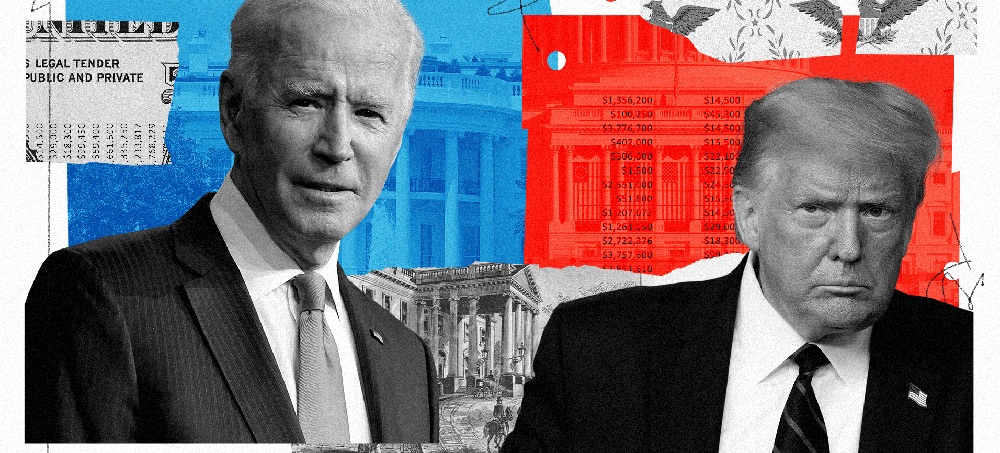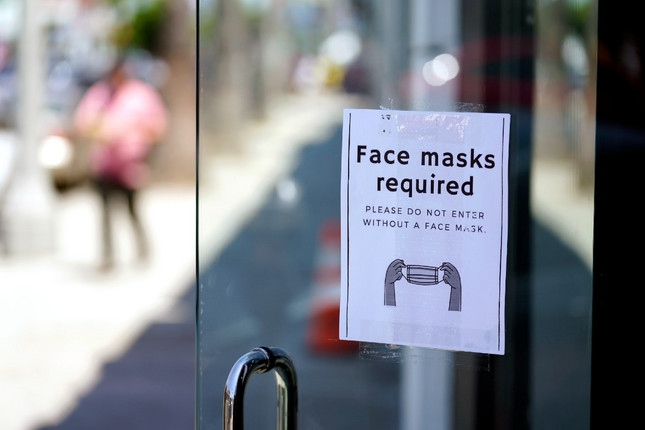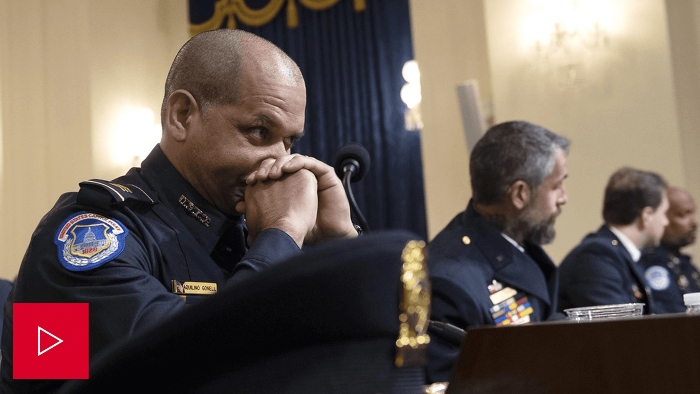Ron Filipkowski on Today's UncoveredOn today’s show, we led off talking about Trump’s reprehensible pardons this week of reality TV couple Todd and Julie Chrisley, Sheriff Scott Jenkins, and Paul Walczak - and what each of them did to get the pardons. We also went over Trump’s statements and social media posts over the past few days where he said the quiet part out loud on Vladimir Putin. I talked about Trump and Stephen Miller’s war on higher education, and how Harvard has become the front in that battle. We also talked about Jake Tapper’s book tour, his apology to Lara Trump, and how Jim Jordan is about to weaponize it with hearings where Biden staffers have been subpoenaed. Of course, we had to talk about ex-swimmer/current culture warrior Riley Gaines and her gripe on Fox about Kermit the Frog giving the commencement speech at Maryland. And contrasted that with the “trophy wife” comments Trump made at West Point. I also talked about how Trump and Pete Hegseth’s bumbling incompetence has given Canada tremendous negotiating leverage on tariffs. Lots of other stuff but those we the bigger topics. Link to the show is here. If you missed yesterday’s Today in Politics Bulletin you can find it here. |
Search This Blog
Wednesday, May 28, 2025
Ron Filipkowski on Today's Uncovered
Sunday, March 31, 2024
On the Take
There's a reason Trump cozies up to Putin. Putin helped Trump win his first term, and now Trump owes him. It was never about 'America First', it's always been about satisfying the dictator he's indebted to. The Lincoln Project is a leading pro-democracy organization in the United States — dedicated to the preservation, protection, and defense of democracy. Our fight against Trumpism is only beginning. We must combat these forces everywhere and at all times — our democracy depends on it. Don’t forget to like, share, and follow The Lincoln Project on social media below! DONATE TO THE LINCOLN PROJECT https://action.lincolnproject.us/donate JOIN OUR MAILING LIST https://action.lincolnproject.us/join FOLLOW LINCOLN PROJECT TWITTER: https://bit.ly/3zwZFva INSTAGRAM: https://bit.ly/31yyrHR FACEBOOK: https://bit.ly/3zCBHhT REDDIT: https://bit.ly/39PLnxi TIKTOK: https://bit.ly/3xHYRCY PODCAST: https://apple.co/3G7zr4L We can’t do our work without your support. Thank you.
Saturday, February 12, 2022
RSN: FOCUS: Robin Wright | Who Blinks First in Ukraine?
Live on the homepage now!
Reader Supported News
Joe Biden is the latest in a long line of American leaders who have tried to persuade Russians and other rivals to back down from a military confrontation.
For more than a century, U.S. Presidents have had a mixed record in staring down rivals and persuading them to peacefully retreat. The classic example is the Cuban missile crisis. In 1962, U.S. spy planes spotted construction sites for Soviet ballistic missiles in Cuba, leading Pentagon brass to unanimously urge President John F. Kennedy to strike the sites—and then invade. Kennedy pushed back. Instead, he ordered a naval “quarantine” and demanded that Moscow withdraw its weaponry. Washington would regard “any nuclear missile launched from Cuba against any nation in the Western Hemisphere as an attack by the Soviet Union on the United States, requiring a full retaliatory response upon the Soviet Union,” Kennedy warned in a televised address. The Pentagon moved to DEFCON 3, requiring the Air Force to be ready to launch in fifteen minutes. Premier Nikita Khrushchev countered angrily that the blockade was “an act of aggression” and refused to budge. The U.S. moved to DEFCON 2, signalling that war was imminent. It was, according to the State Department’s official history, “the moment when the two superpowers came closest to nuclear conflict.”
Even as a military confrontation seemed inevitable, Kennedy opted for the long and often tortuous game of diplomacy. Several weeks into the stalemate, a Soviet agent passed a message to the White House—through the ABC correspondent John Scali—with a compromise. It was followed by a secret and emotional ramble from Khrushchev about the spectre of nuclear holocaust. “If there is no intention to doom the world to the catastrophe of thermonuclear war,” he wrote Kennedy, “then let us not only relax the forces pulling on the ends of the rope, let us take measures to untie that knot.” The note led to unusual back-channel talks, including the first Track Two diplomacy between the superpowers through back channels that were not diplomats. It ended with Washington promising not to invade Cuba again and Moscow removing its missiles. A year later, the U.S. also quietly withdrew its missiles from Turkey. The diplomacy had enduring impact. It spawned the first “hotline” between Washington and Moscow, and negotiations for the historic Nuclear Test Ban Treaty concluded the following year.
Yet the U.S. has had epic and long-forgotten failures, too. In the late nineteen-thirties, after Japan occupied China, tensions erupted between Washington and Tokyo at a time they were jockeying for influence, resources, and trade in East Asia. To counter Japan, President Franklin D. Roosevelt extended credits to China to buy war matériel and restricted oil, steel, iron, and other goods needed for Japan’s growing industries. Joseph Grew, the U.S. Ambassador in Tokyo, was part of intense behind-the-scenes diplomacy to defuse the crisis, which was compounded when Japan joined the tripartite alliance with Nazi Germany and Fascist Italy. In September, 1941, Japan proposed a meeting between Roosevelt and Prime Minister Konoe Fumimaro in Hawaii. Roosevelt countered that the journey would eat up twenty-one days—too long to be away—and proposed Juneau, Alaska, a trip requiring two weeks. Roosevelt insisted on preliminary talks to create a common understanding, and gave notice that he intended to first “discuss the matter fully” with China, Britain, and the Netherlands, according to the State Department. In November, the U.S. proffered a ten-point statement calling for Japan to withdraw its troops from China in exchange for the lifting of U.S. sanctions. Neither side budged.
On December 7, 1941, Japan bombed Pearl Harbor—killing more than twenty-four hundred Americans—and then attacked U.S. and British bases in the Philippines, Malaya, Hong Kong, and several island nations. “Within days, the Japanese were masters of the Pacific,” the National World War II Museum records. The U.S. entered the Second World War. And more than a hundred thousand Americans died in the Pacific over the next four years. “We were unsuccessful in deterring a major Japanese attack in 1941,” Hal Brands, a former special assistant to the Secretary of Defense, now at the Johns Hopkins School of Advanced International Studies, told me. “That was a classic failure of deterrence. It may actually have been because we put the Japanese in a place that if they didn’t use force, they would die by slow strangulation.”
Success requires an inherently fraught blend of deterrence and engagement, Brands noted. The art of diplomacy, as the old adage advises, is telling someone to go to hell in such a way that they ask for directions. There is no single formula, no algorithm to prevent conflict. Avoiding conflict can still mean diplomatic setbacks.
Four years before the Cuban missile crisis, Khrushchev issued an ultimatum, in 1958, demanding that the U.S., Britain, and France pull their forces out of the divided Berlin within six months. Washington refused, but President Dwight D. Eisenhower hosted the Soviet leader at Camp David the next year to probe for compromise. Neither budged. Diplomacy soured after the Soviets shot down an American U-2 plane spying overhead. In a second U.S. attempt, in 1961, Kennedy met Khrushchev in Vienna, but later admitted that he was poorly prepared; the Soviet leader “savaged” him. Emboldened, Khrushchev again gave the U.S. six months to leave Berlin. Kennedy countered by sending troops to Europe, mobilizing a hundred and fifty thousand reservists, and increasing the defense budget to show American resolve. The Soviets, who did not want a war, responded by overseeing the building of the Berlin Wall. The Cold War raged for the next three decades, with Berlin the symbol of the ideological chasm and military tensions between East and West.
American history is replete with other cases when diplomacy failed to prevent confrontation, Brands noted. In the late nineteenth century, President William McKinley tried to compel Spain—through a mix of threats and diplomacy—to either improve the treatment of Cubans who were revolting against colonial rule or grant independence to the island. In exchange, the U.S. proposed that it would not try to annex Cuba. Diplomacy failed. In 1898, Spain declared war on the U.S., triggering the Spanish-American War.
The successes and failures of the past echo in the current U.S. crisis with Russia. Diplomacy, then and now, is always dicey. “America has a prestigious record of using diplomacy to avert war,” Douglas Brinkley, a Presidential historian at Rice University, told me. “During the Cold War era alone, we defused crises in Berlin, Cuba, the Taiwan Strait, Hungary, and elsewhere. But, boy, when we get military intervention wrong—like in Vietnam and Iraq II—it’s beyond tragic.”
In 1990, the U.S. mixed words and muscle after the Iraqi President, Saddam Hussein, occupied oil-rich Kuwait. For six months, the Administration of George H. W. Bush issued diplomatic démarches, mobilized a U.N.-backed coalition, and deployed troops along the border of Saudi Arabia. In a last-ditch overture, Secretary of State James Baker hand-carried a letter from Bush to a meeting with his Iraqi counterpart, Tariq Aziz, in Geneva. Baker later recounted that Aziz looked over the correspondence and said, “I cannot accept this letter. It’s not written in the language that is appropriate for communications between heads of state.’ ”
The U.S.-led coalition invaded Kuwait and forced an Iraqi retreat. But hostility and suspicion endured between Washington and Baghdad. In 2003, U.S. diplomacy again failed to win Saddam’s full compliance with U.N. weapons inspectors—or international support for bad U.S. intelligence that claimed Baghdad was hiding facilities to produce weapons of mass destruction. The U.S. invaded Iraq again, in what many historians view as the worst-ever mistake in U.S. foreign policy.
U.S. diplomacy has also rarely been able to multitask crises. Eisenhower pledged to roll back the spread of Communism in Eastern Europe. He was tested when students and workers launched a spontaneous uprising in Budapest in 1956. Radio Free Europe, funded at the time by the C.I.A., egged on the “unanimous, brave, and heroic strike of the workers.” After Soviet troops intervened to put down the rebellion, Eisenhower said that the uprising reflected “the intense desire for freedom long held by the Hungarian people,” which was clearly affirmed in the charter of the United Nations. But Eisenhower did little except give lip service as he focussed on a simultaneous crisis involving the Suez Canal. The U.S. prevailed in the Middle East, but Hungary remained under Communist rule for another three decades.
Six decades after the Cuban missile crisis, Biden’s challenge with Moscow differs in political geography, strategic interest, and a leader’s grasp on power. Cuba is more than five thousand miles from Russia; Ukraine constitutes Russia’s longest border with the West. The Soviet Union didn’t have an easy way to deploy more than a hundred thousand troops in Cuba, as Russia does today along its border with Ukraine. The Cuban missile crisis marked the beginning of the end for Khrushchev, Brinkley noted. The Soviet leader was ousted in 1964 after setting up a system that made him more vulnerable politically. In contrast, Putin has manipulated politics—including constitutional changes to term limits—to insure his longevity. Brinkley predicted, “Putin is not going to collapse anytime soon.”
Follow us on facebook and twitter!
PO Box 2043 / Citrus Heights, CA 95611
Saturday, January 1, 2022
RSN: FOCUS: Juan Cole | The Unbearable Double Standard of the US Press, Judging Biden Harshly and Abruptly Forgetting Trump's Bizarre Antics
Live on the homepage now!
Reader Supported News
Biden’s pull-out from Afghanistan was admittedly a disaster. But it was a disaster because the Afghanistan army and government put in place by the US nearly twenty years ago unexpectedly and abruptly collapsed. It was not a disaster because Biden decided to pull out of Afghanistan.
Historian Timothy Naftali was on CNN on Wednesday arguing that the withdrawal was an unforced error on Biden’s part. He could not be more wrong.
Trump was the one who pulled out of Afghanistan. He reduced troop strength from some 14,000 to only 8500 in 2019. He made a peace treaty with the Taliban in February of 2020, in which he gave an iron clad pledge to get all US troops out of the country by May 1, 2021. You hear pundits say that the US troops had not been attacked lately. But that was why. The Taliban had a truce with Trump. By the way, Trump negotiated the surrender to the Taliban without so much as a by your leave regarding the Afghanistan government. They were not allowed to be at the table. Also, Trump said he thought the Taliban might take over the prosecution of the war on terror for us. Trump tried to order the US troops out of Afghanistan in October of 2020 by Twitter, but the Pentagon would not take the hint. The former president had it in his head that the withdrawal would be popular with the white working class resentful of spending money on foreign boondoggles and might help him get elected.
Biden postponed the US withdrawal from May 1 to August 31 without starting back up a war with the Taliban, but the latter warned that if he tried to stay later than that, they would go to war. We now know that they actually controlled most of the country by last summer, so if Biden had tried to stay, he would have had to fight the Second Afghan-American War. Given that 20 years of massive US support to the tune of $2 trillion had not produced a government or an army that could stand on their own feet, to go to war all over again in 2021 raises the question of “are you effing kidding me?” The NYT’s intrepid Azmat Zahra’s reporting on the massive unacknowledged civilian casualties of US air and drone wars has lessons for us about how the US was only able to stay in Afghanistan by bombing the bejesus out of the rural population year after year, which kept US troops from just being tossed out of the country but made the country’s population more and more determined to do just that.
But Naftali voiced the common wisdom among the chattering classes, slamming Biden for a situation that Trump created and not even once remembering that Trump hoped the Taliban would take up the war on terror for us.
It is like we had President Elmer Fudd and then we had a normal human being, and the pundits want Elmer Fudd back; he can’t shoot a rabbit to save his life, but by God he’s entertaining.
Then there is all the angst about whether Biden is being “weak” in facing Putin. If you read Fox News headlines you’d think “weak” was the president’s middle name. Biden on the contrary has been so firm with Putin that Putin has asked for a call today, Thursday, clearly concerned that the Ukraine crisis could get out of hand.
So let’s recall about Trump being Putin’s lap dog. The unrecorded conversations he insisted on having, with no US interpreter present (a breach of protocol). The way he kept telling his adoring cultist crowds that better relations with Russia would be a good thing. The time 2 years ago when CNN had the wit to observe 37 times Trump was soft on Putin are long gone. Trump said Putin did “an amazing job” taking over Crimea from Ukraine, and said people in Crimea were much happier this way.
Can you imagine the weeks-long piranha-like frenzy in the US press today if Biden had said something like that?
Trump met with a Russia delegation including Foreign Minister Sergei Lavrov and let them know that Israel had a highly placed spy in ISIL. Trump tried to invite Russia to the G7 meeting although any pretense that Russia is a democracy had long since been dropped, and he ordered the CIA to share intelligence with Russia.
Trump had all the spine of a garden slug in dealing with Moscow.So now Biden, who is tough and forthright with Putin, is being pilloried as weak?
And don’t get me started on the treatment of Biden’s pandemic response, in which he called out troops and the national guard and pulled out all stops to get 200 million Americans vaccinated, in the teeth of Republican opposition, and saved 1.1 million lives this year that otherwise would have been lost. Trump in contrast actively sabotaged the Covid response in 2020 and suggested people shoot up with chlorine, so that Deborah Birx suggested he killed off 130,000 to 160,000 people that hadn’t needed to die.
Biden like any other president should have his policies critiqued. That is the democratic task of the press, and I’m glad to pile on where I see bad policy. But Biden’s Afghanistan withdrawal was not an unforced error out of the blue, and he hasn’t been weak in dealing with Vladimir Putin, and his Covid response has been an amazing success, and you just would not know that from watching or reading news in America.
How Putin and Trump's relationship developed over the years
Follow us on facebook and twitter!
PO Box 2043 / Citrus Heights, CA 95611
Saturday, December 25, 2021
CC Newsletter 24 Dec - Wishing you a Merry Christmas!
Wednesday, July 28, 2021
POLITICO NIGHTLY: Delta to Biden: The easy part is over
|
|
Evening Roundup, May 28...plus a special thank you to our Contrarian family
Evening Roundup, May 28...plus a special thank you to our Contrarian family Featuring Jen Rubin, Katherine Stewart, Brian O'Neill, Jenni...

-
01 January 22 Live on the homepage now! Reader Supported News FOCUS: Robert Reich | The Road Ahead Robert Reich, Robert Reich's Su...
-
29 January 22 When You Back RSN You Are Backing Proven Fighters Pressuring the networks, not allowing the real story to go unnoticed, ma...
-
06 October 21 Live on the homepage now! Reader Supported News WHAT’S THE COST OF A CORPORATE INFORMATION MONOPOLY? — Everything? In effect...







